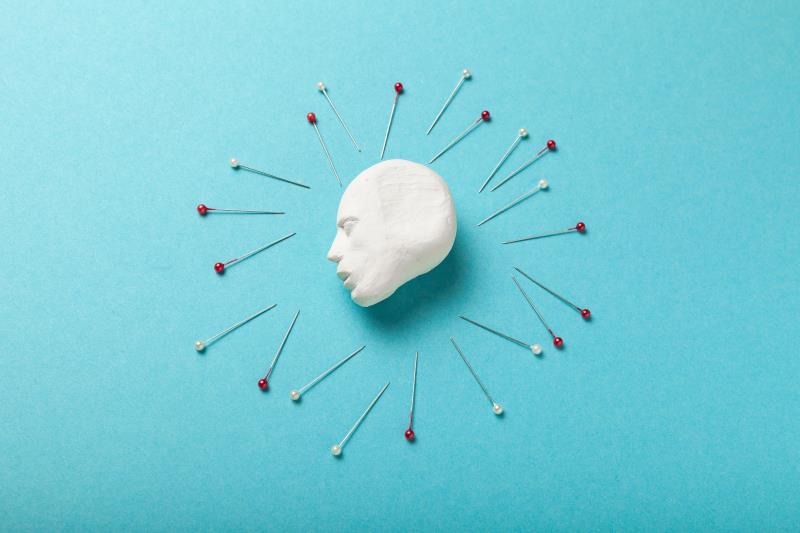Eptinezumab improves outcomes, lowers medication use in patients with chronic migraine and medication-overuse headache





In patients diagnosed with chronic migraine and medication-overuse headache (MOH), treatment with eptinezumab led to improved patient-reported outcomes, fewer migraine days, and a reduction in acute medication use, according to subgroup analyses of the PROMISE-2* trial presented at AHS 2020.
“Eptinezumab treatment resulted in clinically meaningful improvements in headache-related life impact, and patients treated with eptinezumab indicated greater improvements in disease status and patient-identified [most bothersome symptom (MBS)] than patients who received placebo as early as week 4 and throughout 24 weeks of treatment,” said the researchers.
The study population comprised 431 patients enrolled in the PROMISE-2 trial who were diagnosed with both chronic migraine and MOH. Patients had been randomized to receive intravenous eptinezumab at 100 or 300 mg (n=139 and 147, respectively) or placebo (n=145) at baseline and week 12.
About 87.5 percent of patients reported severe life impact at baseline, with a mean 6-item Headache Impact Test (HIT-6) score of ~65. At week 4, fewer patients who received eptinezumab reported severe life impact compared with placebo recipients (50.7 percent and 39.0 percent for 100 and 300 mg, respectively, vs 61.1 percent). Similar findings were noted at week 24 (39.5 percent and 38.6 percent vs 65.6 percent).
This was accompanied by a greater change from baseline in HIT-6 total score with eptinezumab 100 and 300 mg vs placebo at week 4 (-6.9 and -8.9 vs -4.4) and week 24 (-7.4 and -9.0 vs -4.1).
More eptinezumab than placebo recipients indicated “much improved” or “very much improved” on the patient global impression of change (PGIC) at week 4 (43.8 percent and 62.3 percent for 100 and 300 mg, respectively, vs 35.4 percent for placebo) and week 24 (57.4 percent and 64.3 percent vs 37.4 percent).
Similarly, more eptinezumab than placebo recipients indicated “much improved” or “very much improved” on patient-identified MBS at week 4 (42.6 percent and 58.6 percent vs 28.5 percent) and week 24 (58.1 percent and 65.0 percent vs 35.1 percent).
Reduced acute medication use
Use of acute medications – triptan, ergot, opioid, simple analgesic, and combination analgesic – was also reduced in patients with chronic migraine and MOH who received eptinezumab 100 or 300 mg compared with placebo.
Over the 28-day baseline period, patients used any acute medication for a mean ~16.4 days/month, while total acute medication (sum of days for each medication class) and triptans were used for a mean ~20.4 and ~8.9 days/month across the treatment groups.
During weeks 1–12 of assigned treatment, a greater reduction in acute medication use was noted among eptinezumab 100 and 300 mg vs placebo recipients (8.8 and 9.9 vs 11.8 days/month). Total acute medication use was also reduced (10.8 and 12.2 vs 14.8 days/month) as was use of triptans (4.3 and 4.4 vs 6.4 days/month).
Fewer migraine days
Patients assigned to eptinezumab also experienced a greater reduction in monthly migraine days (MMDs) compared with those assigned to placebo.
At baseline, patients experienced 16.7 migraine days per month. Over weeks 1–12, eptinezumab recipients experienced a greater reduction in MMDs vs placebo recipients (-8.2 and -8.5 [100 and 300 mg, respectively] vs -5.2 [placebo] days/month).
On days 1–7, fewer eptinezumab than placebo recipients experienced migraine (27.8, 30.1, and 45.5 percent of eptinezumab 100 and 300 mg and placebo recipients, respectively), a reduction from ~59.7 percent at baseline.
Response rate of ≥50 percent occurred in 60.4, 61.9, and 34.5 percent of eptinezumab 100 and 300 mg and placebo recipients, respectively, while response rate of ≥75 percent occurred in 27.3, 29.9, and 14.5 percent, respectively.
“Eptinezumab [leads to] greater reductions in migraine days compared with placebo at week 12, and with effect as early as day 1 and sustained through 24 weeks,” noted the researchers.